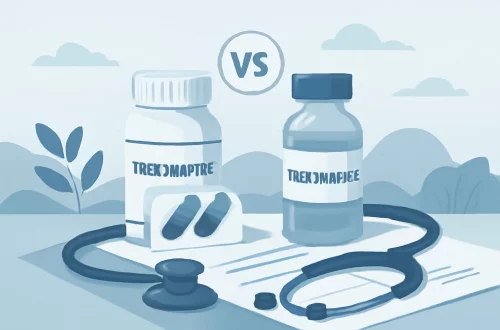
Does Creatine Increase Your Appetite and Make You Hungry?
Creatine is a popular supplement widely used in the fitness and bodybuilding communities for its potential to enhance physical performance. Known primarily for its role in increasing muscle mass and improving strength, creatine has garnered attention for other possible effects, including its influence on appetite. While many athletes and fitness enthusiasts focus on the benefits of creatine in terms of energy production and muscle recovery, questions regarding its impact on hunger levels are not as frequently discussed.
Understanding how creatine interacts with the body can provide valuable insights, especially for those looking to optimize their nutrition and training regimens. Some individuals report an increase in appetite after starting creatine supplementation, while others do not notice any change at all. This variability can be attributed to numerous factors, including individual metabolism, dietary habits, and the specific type of training performed. Furthermore, the relationship between creatine and appetite is complex and not entirely understood, necessitating a closer examination of the underlying mechanisms at play.
In this article, we will explore the connection between creatine supplementation and appetite, shedding light on how it may influence hunger levels and dietary choices.
Understanding Creatine’s Mechanism of Action
Creatine is a naturally occurring compound found in small amounts in certain foods, such as meat and fish, and is also synthesized in the body from amino acids. It plays a crucial role in the production of adenosine triphosphate (ATP), the primary energy currency of cells. By enhancing ATP availability, creatine supplementation can lead to improved performance in high-intensity exercise, allowing individuals to train harder and longer.
When it comes to its potential effects on appetite, creatine’s mechanism is not straightforward. One hypothesis is that increased muscle mass, a common result of creatine supplementation, may lead to a higher resting metabolic rate. This increase in metabolism could, in theory, stimulate appetite as the body requires more energy to support its larger muscle mass.
Additionally, creatine may influence hormonal balances related to hunger. For instance, it is thought that creatine could affect levels of insulin and other hormones that regulate appetite. Insulin, in particular, plays a pivotal role in energy storage and can impact feelings of hunger and satiety. If creatine supplementation leads to changes in insulin sensitivity or secretion, it may indirectly influence appetite levels.
Furthermore, hydration status plays a significant role in how creatine functions within the body. Creatine draws water into muscle cells, which can lead to an increase in body weight due to water retention. This change in body composition might also affect hunger signals, as the body adjusts to its new weight and metabolic state.
Ultimately, while the mechanism through which creatine might influence appetite is multifaceted, it remains a topic of ongoing research. Various studies have indicated different outcomes, with some showing no significant impact on appetite, while others suggest a potential increase in hunger levels. This variability underscores the need for further investigation into how creatine affects individuals differently.
Creatine and Its Effects on Body Composition
One of the most well-documented effects of creatine supplementation is its ability to promote muscle hypertrophy. This increase in muscle size can result from several factors, including enhanced protein synthesis and increased water retention within muscle cells. As individuals gain muscle mass, their body composition shifts, which can influence overall health and well-being.
Increased muscle mass not only improves strength and athletic performance but can also have implications for metabolism. Muscle tissue is metabolically active, meaning it burns more calories at rest compared to fat tissue. Consequently, as individuals build more muscle through resistance training and creatine supplementation, they may experience an uptick in their basal metabolic rate (BMR). A higher BMR can lead to increased energy expenditure, which might necessitate higher caloric intake to meet the body’s demands.
This requirement for additional calories can manifest as an increase in appetite. When the body signals that it needs more energy to support its new muscle mass, it may trigger hunger cues. However, it’s important to note that not everyone will experience a noticeable change in appetite. Individual factors, such as genetics, lifestyle, and dietary habits, play a crucial role in determining how creatine affects hunger levels.
Moreover, the timing and type of exercise performed alongside creatine supplementation can influence appetite. For instance, engaging in high-intensity training may lead to greater muscle gains and subsequently a more pronounced appetite increase. On the other hand, individuals who partake in less strenuous activities may not experience the same effects.
In conclusion, while creatine is widely recognized for its performance-enhancing benefits, its impact on body composition and the subsequent effect on appetite can vary significantly among individuals. Understanding these nuances can help users tailor their supplementation and dietary strategies to align with their fitness goals.
Individual Variability in Appetite Response
When it comes to the effects of creatine on appetite, individual variability is a significant factor that cannot be overlooked. Not everyone responds to creatine supplementation in the same way, and this diversity can be attributed to a myriad of factors, including genetics, diet, physical activity levels, and even psychological aspects.
Genetic predispositions play a crucial role in how individuals metabolize and utilize creatine. Some people may have a naturally higher capacity for creatine storage in their muscles, which could lead to more pronounced effects on performance and possibly appetite. Conversely, those with lower creatine storage capabilities may not experience the same benefits, resulting in a negligible impact on hunger.
Dietary habits also significantly influence how creatine affects appetite. For instance, individuals consuming a balanced diet rich in protein may already experience a higher baseline level of satiety, making any additional appetite stimulation from creatine less noticeable. On the other hand, those with lower protein intake might find that creatine supplementation increases their hunger levels, as their bodies signal the need for more nutrients to support muscle growth and recovery.
Physical activity levels are another critical component in this equation. Active individuals, particularly those engaged in resistance training, may find that creatine enhances their performance and leads to increased muscle mass, subsequently triggering a rise in appetite. In contrast, sedentary individuals may not experience the same effects, as the lack of physical stimulus can influence hunger signals differently.
Psychological factors, including stress and mood, can also impact appetite. Some individuals may find that their appetite decreases during times of stress, while others may experience increased cravings for certain foods. These psychological elements can interact with the physiological effects of creatine, further complicating the relationship between supplementation and hunger.
Overall, the variability in appetite response to creatine supplementation underscores the importance of a personalized approach. Individuals should pay attention to their unique experiences and adjust their dietary and supplement strategies accordingly to achieve their fitness goals.
Potential Strategies for Managing Appetite with Creatine
For individuals concerned about increased appetite or unwanted weight gain associated with creatine supplementation, several strategies can help manage hunger levels while still reaping the benefits of this popular supplement.
First and foremost, monitoring overall caloric intake is crucial. Keeping track of daily caloric consumption can help individuals ensure they are not overeating due to increased hunger signals. Utilizing a food diary or a nutrition tracking app can aid in maintaining awareness of eating habits, making it easier to adjust portions as needed.
Incorporating more nutrient-dense foods into the diet can also be beneficial. Foods rich in fiber, protein, and healthy fats can promote satiety and help curb excessive hunger. For example, including lean sources of protein, such as chicken, fish, and legumes, along with plenty of fruits and vegetables, can create a balanced diet that satisfies hunger without leading to weight gain.
Timing meals and snacks strategically can also support appetite management. Eating smaller, more frequent meals throughout the day can help maintain steady energy levels and prevent extreme hunger, which may lead to overeating. This approach allows individuals to enjoy their meals while still accommodating the increased energy demands associated with creatine supplementation.
Lastly, staying hydrated is vital for managing appetite. Sometimes, feelings of hunger may actually be signs of dehydration. Ensuring adequate fluid intake throughout the day can help mitigate unwanted hunger cues and support overall health.
In summary, while creatine supplementation may lead to variations in appetite, employing thoughtful dietary strategies can help individuals effectively manage their hunger levels. By focusing on overall nutrition and being mindful of eating habits, users can enjoy the benefits of creatine without compromising their dietary goals.
In conclusion, while this article aims to provide insights into the relationship between creatine and appetite, it is important to note that individual experiences may vary. Always consult with a healthcare professional before making any changes to your supplement regimen, especially if you have underlying health concerns.




